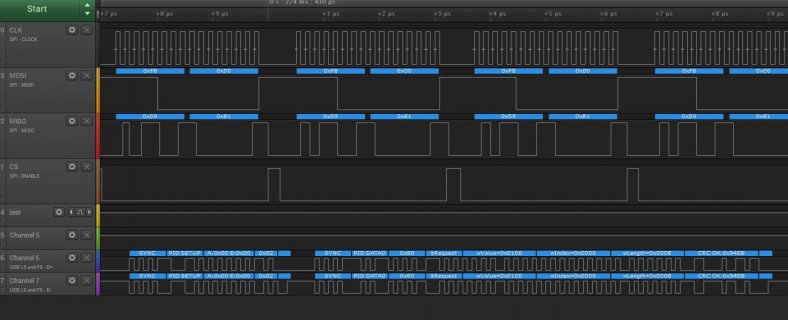Because the Linux USB serial driver keeps wedging on high data amounts, I'm using HID to send/receive data to the Teensy. This is not wedging, so yay!
But, I'd like to also use the serial port for smaller debug data type stuff.
Is there an easy way to get HID + Serial on the Teensy 3.2? The default project settings don't have an option like that, but perhaps there's some simple config file change that will enable this?
But, I'd like to also use the serial port for smaller debug data type stuff.
Is there an easy way to get HID + Serial on the Teensy 3.2? The default project settings don't have an option like that, but perhaps there's some simple config file change that will enable this?


